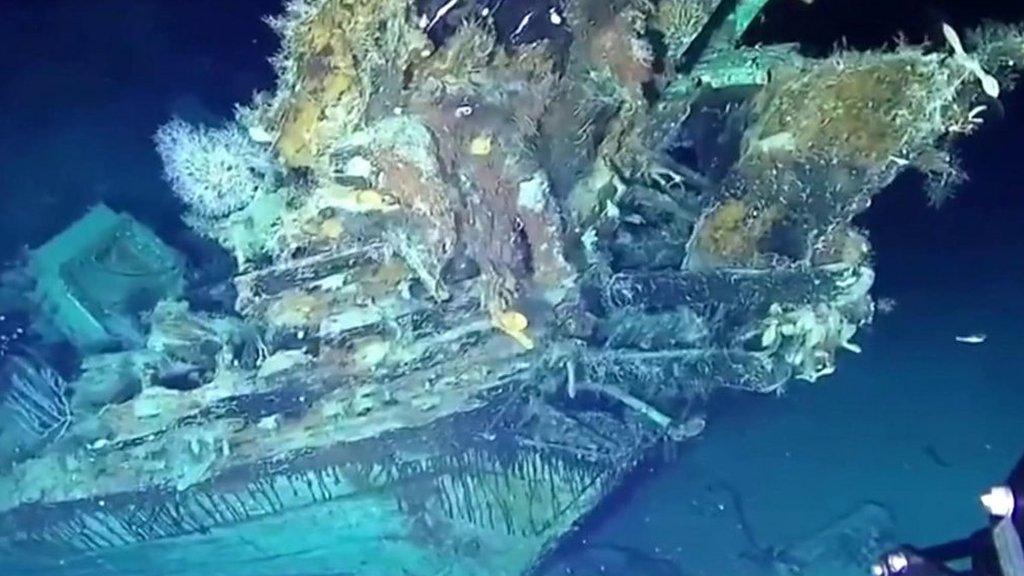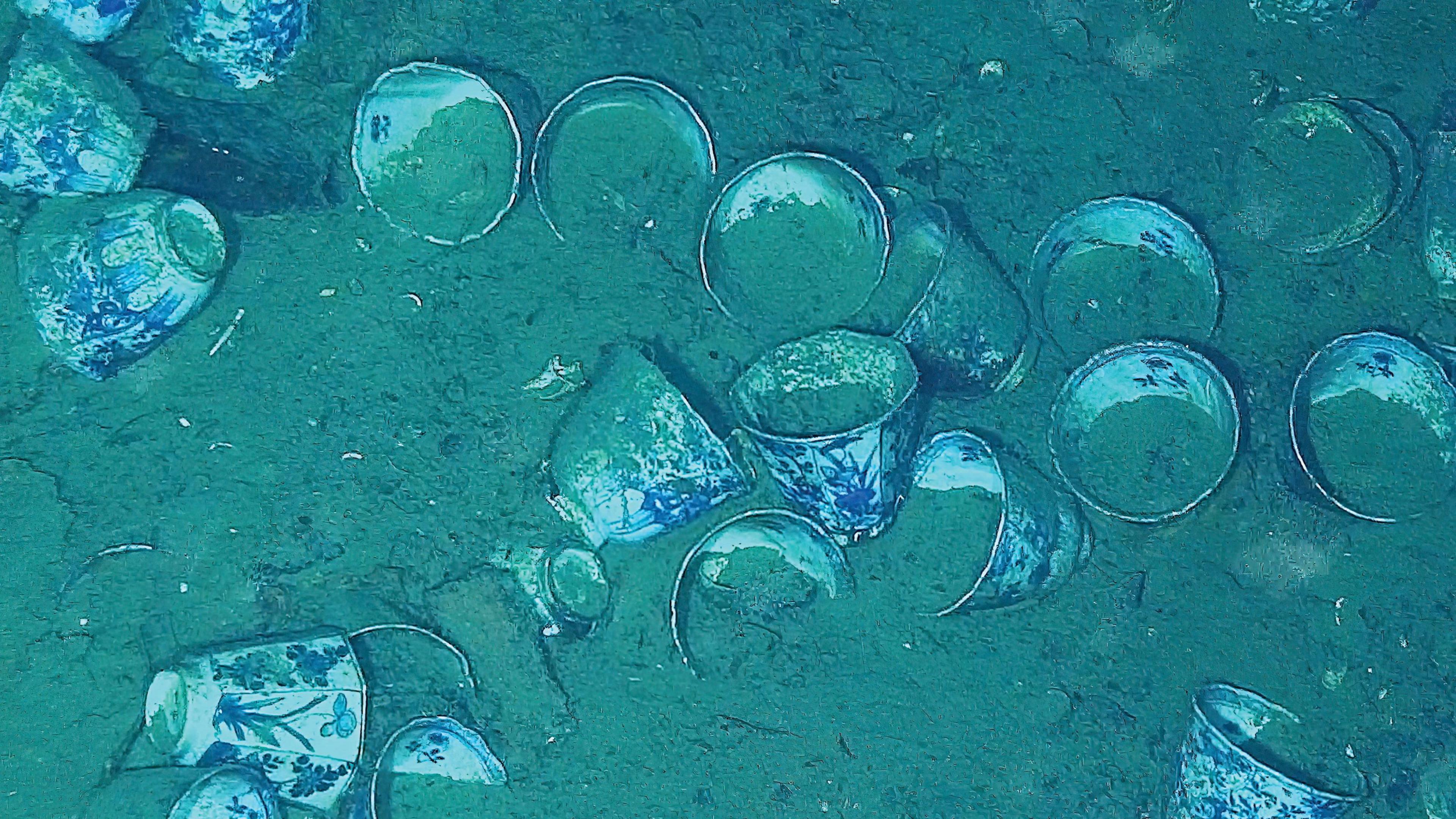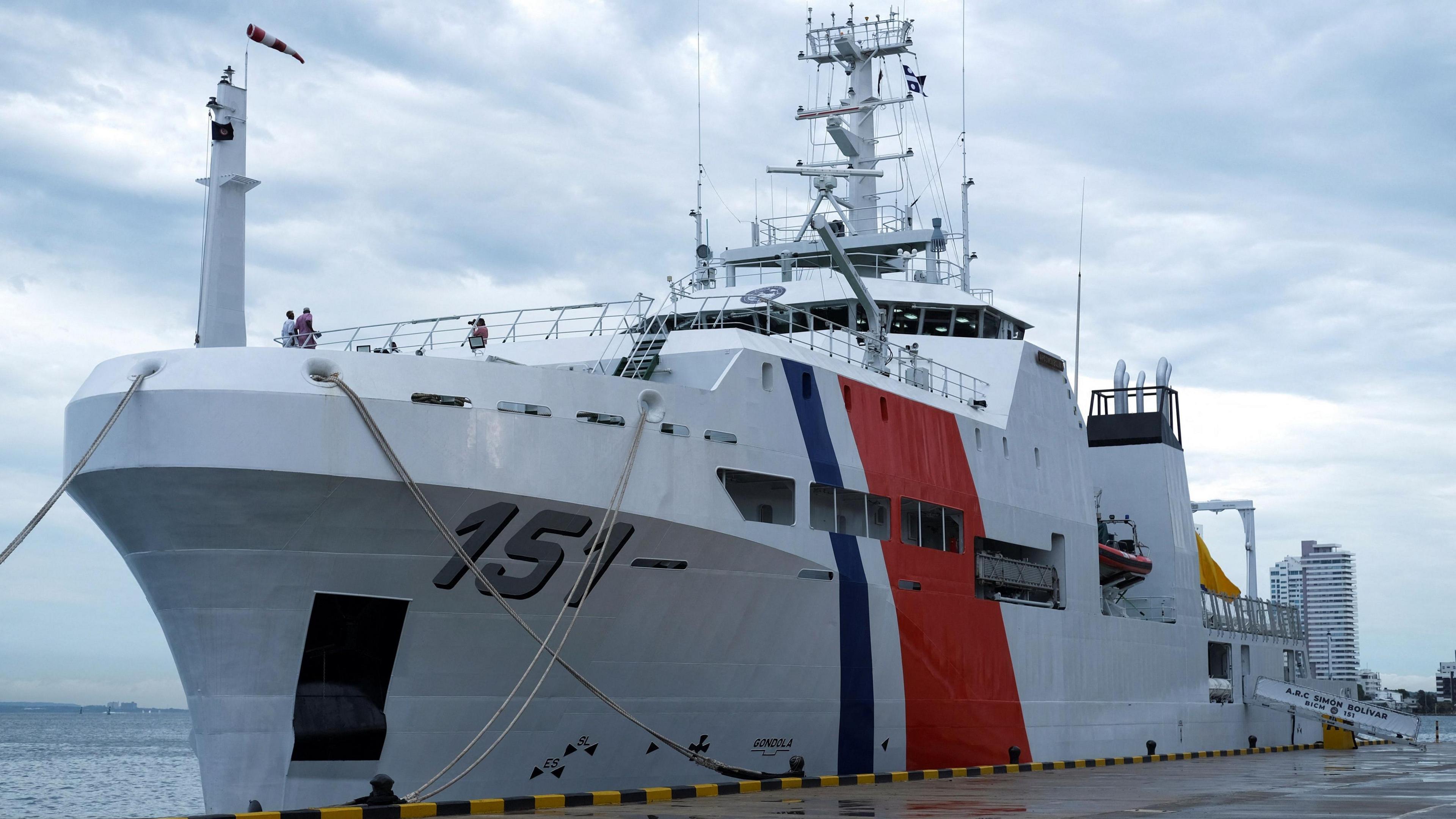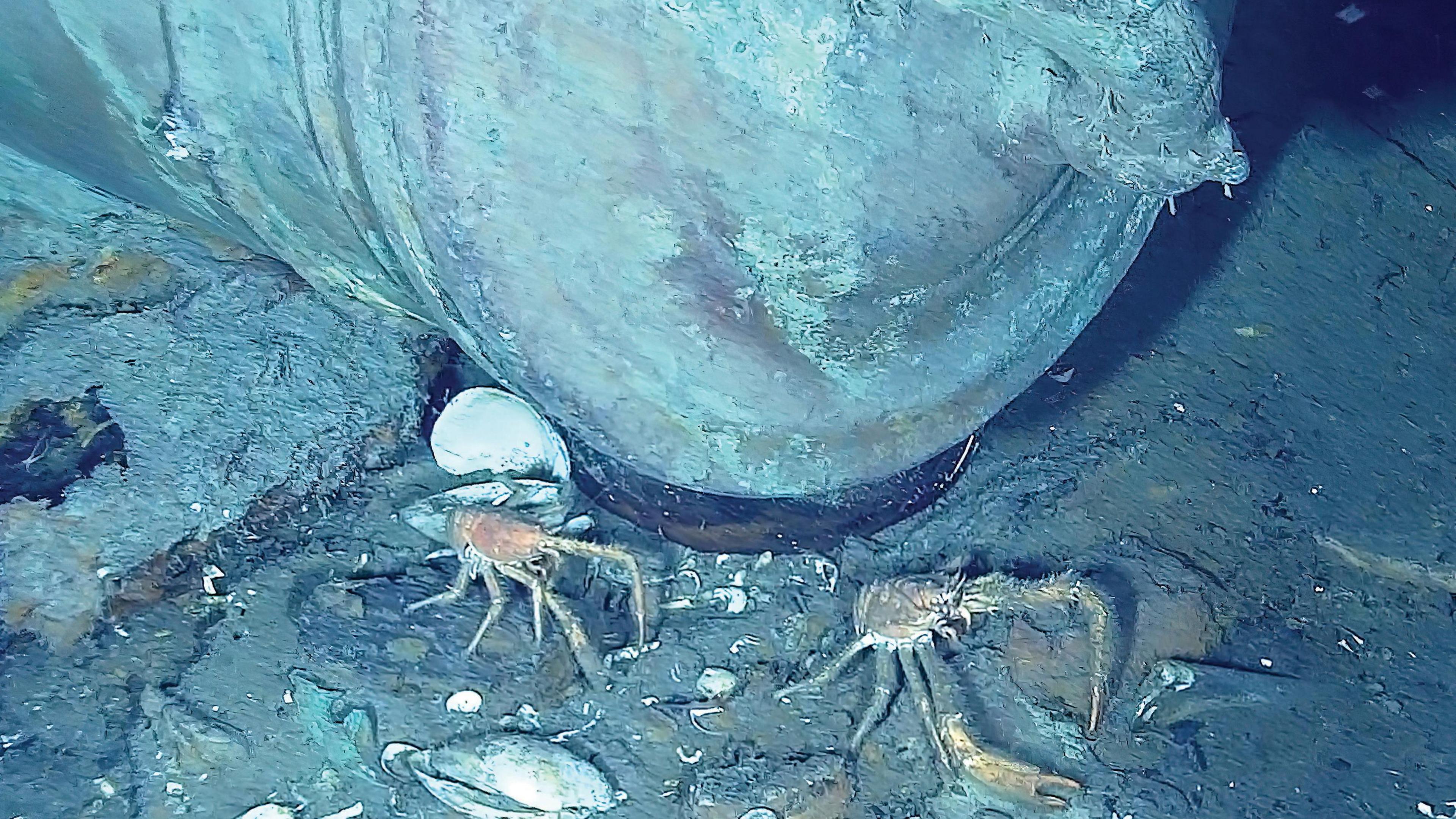Colombia begins exploring ‘holy grail of shipwrecks’
- Image source, Reuters
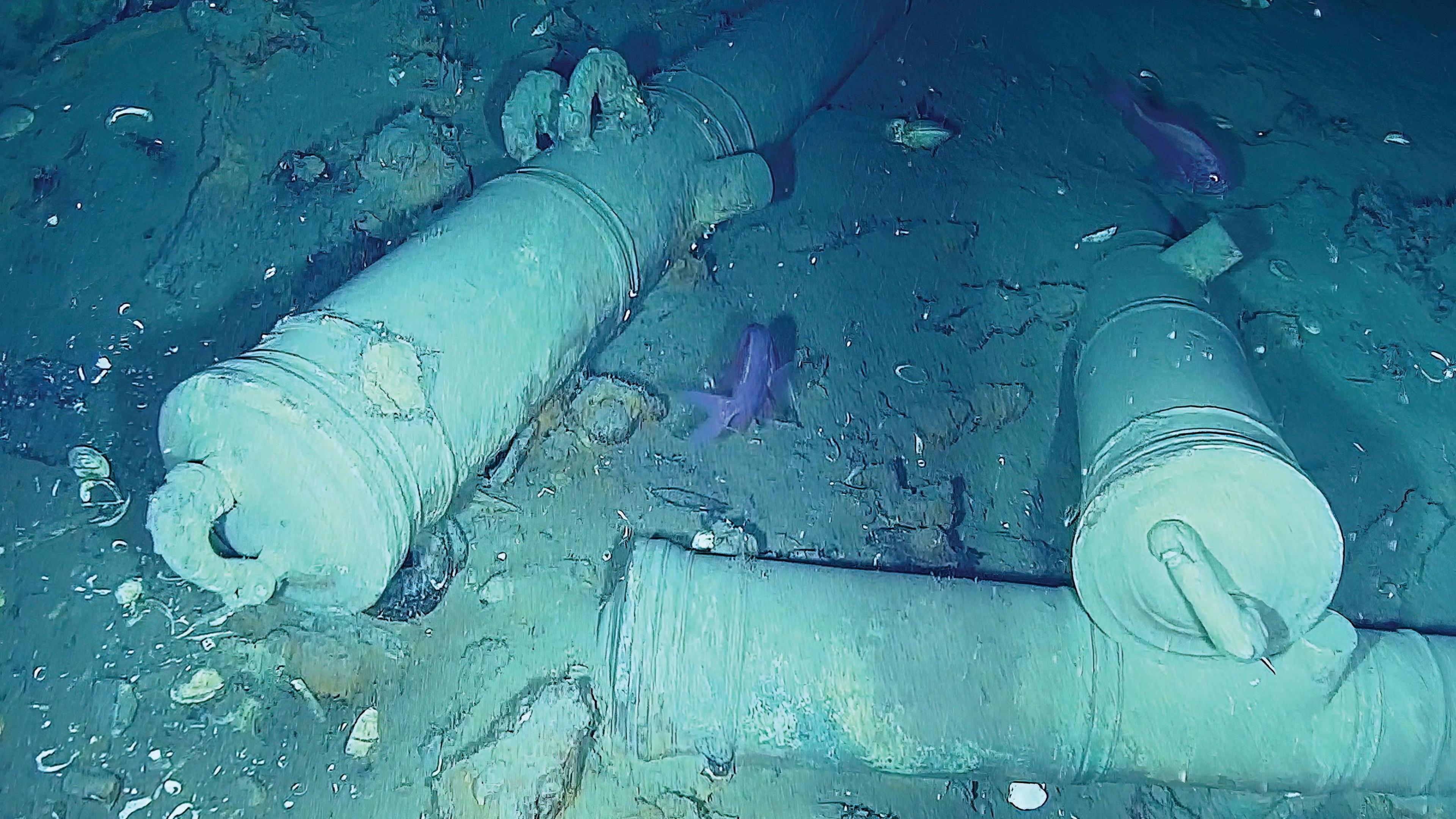
Image caption, The first phase of Colombia's project will survey the items in the wreck
1 of 4
- Published
The Colombian government has started exploring a sunk 18th Century Spanish galleon dubbed the “holy grail of shipwrecks”.
The South American nation has also declared a protected archaeological area around the San José galleon - which was sunk by the British Royal Navy in 1708 in the Caribbean Sea.
The ship, whose ownership remains contested, was carrying one of the largest hauls of valuables ever lost at sea when it was attacked just outside of the Colombian city of Cartagena.
It is estimated to be laden with as much as £16bn ($20bn) in treasure.
At the time, the vessel had been transporting its precious cargo to the Spanish king to help pay for his war against the British. Almost 600 crew members went down with it.
The first stage of the research project - described as a "characterisation phase" - will use remote sensors to generate images of the site to build an inventory of the archaeological material on the seabed.
Underwater robots will also take readings around the shipwreck, which will be used to inform academic studies, the Colombian Institute of Anthropology and History said.
Subsequent phases will depend on what comes to light in this first phase of the project, it added.
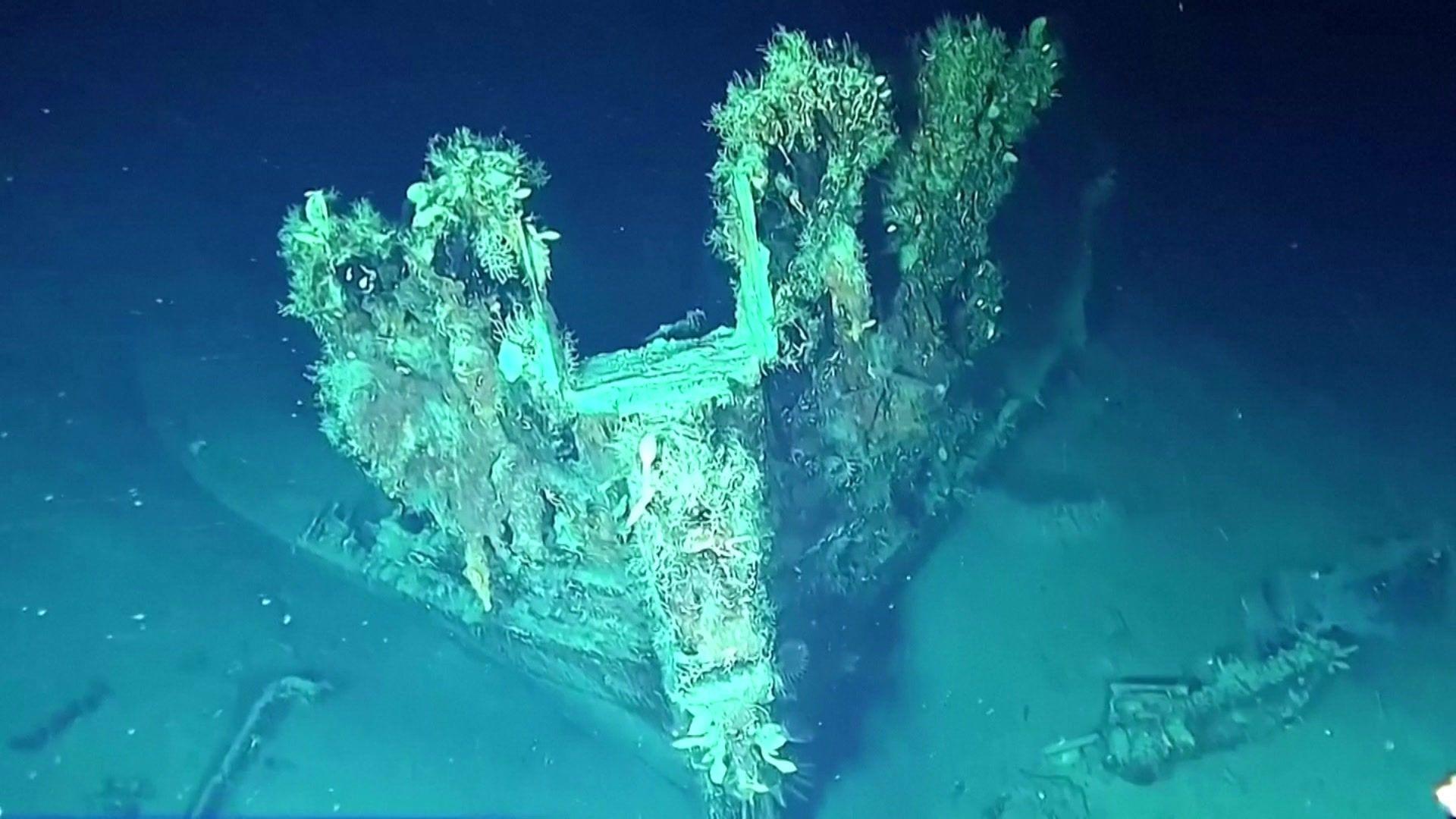
The San José galleon was sunk by the British in 1708
The title of the project translates as “towards the heart of the San José galleon”.
Juan David Correa, Colombia's culture minister, described the exploratory expedition as "unprecedented".
The Colombian government has said the declaration of the site as a protected area would allow for it to be preserved, given its "high scientific and heritage value".
Colombia announced the discovery of the wreckage in 2015 - but it is subject to longstanding legal disputes over who owns the contents of the ship.
US salvage company, Sea Search Armada, is one of the parties laying claim to it, as Spain has previously.
The Colombian government has said no archaeological excavations are planned in the initial stage of the project.
Related topics
- Published5 December 2015
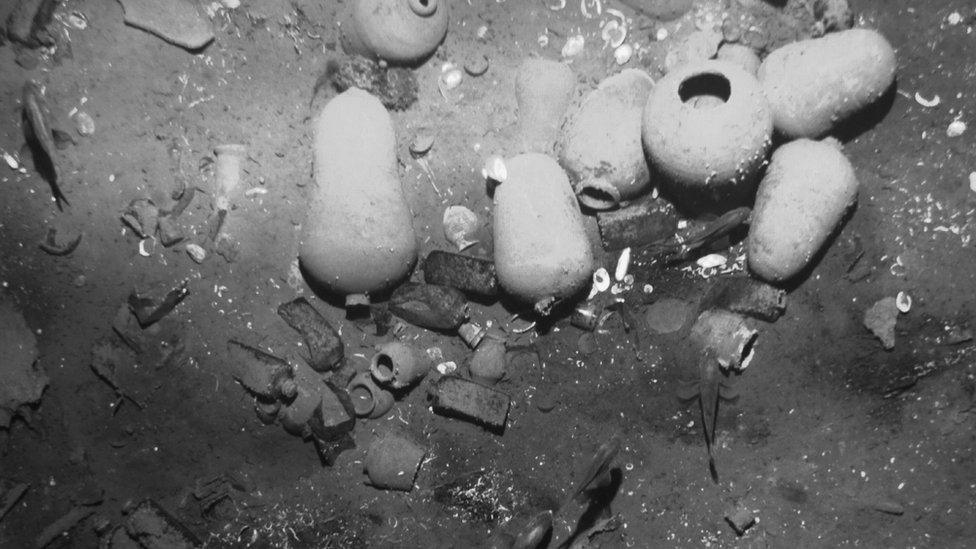
- Published12 November 2023
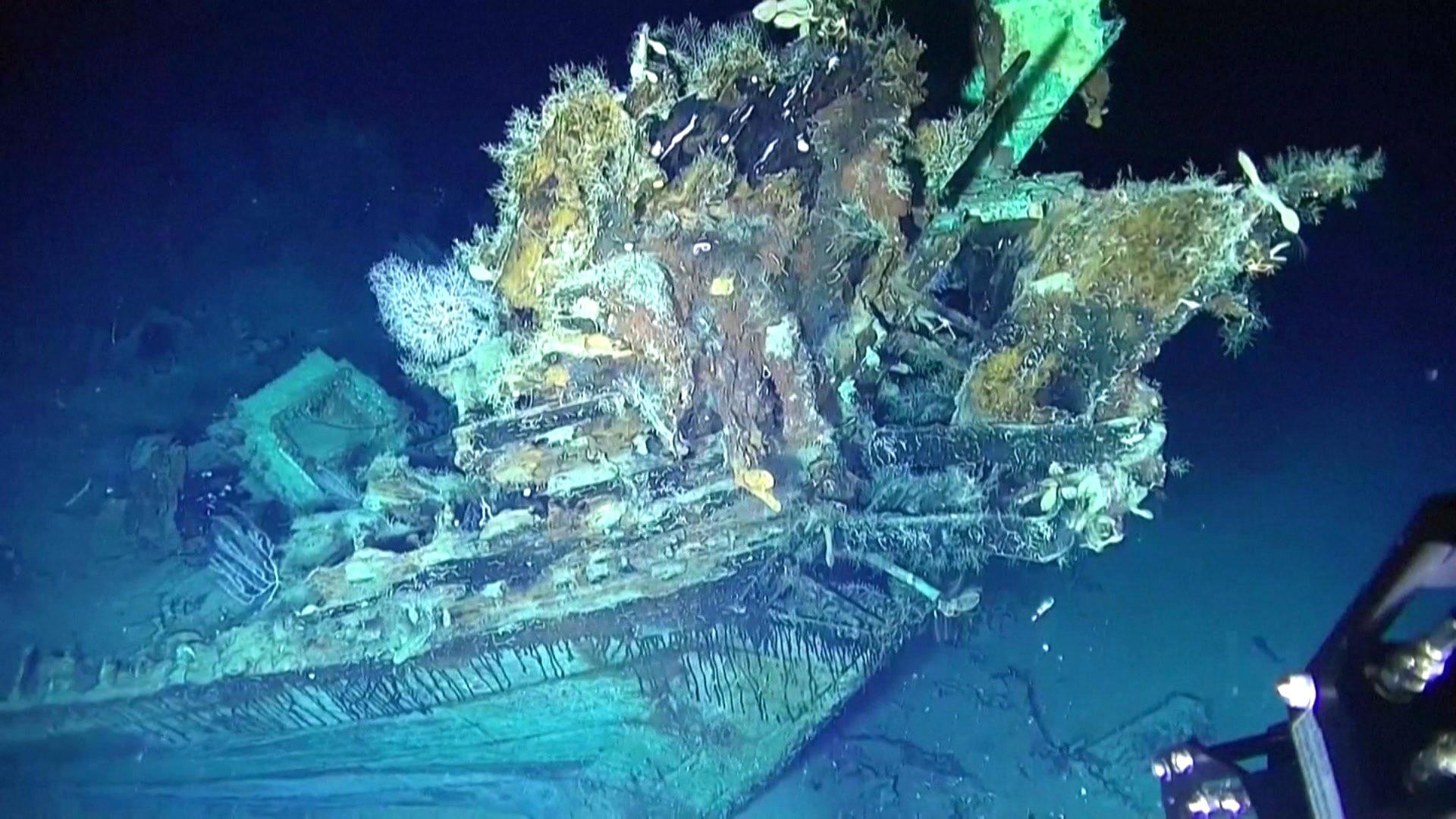
- Published7 June 2022
